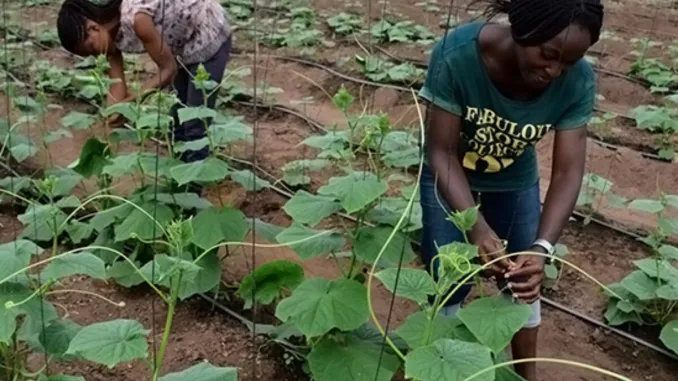The Federal Government of Nigeria has inaugurated a six-year national agricultural technology and innovation policy (NATIP) from 2022 to 2027 to enhance agribusiness in the country.
This document was inaugurated by the Minister of Agriculture and Rural Development, Dr Mohammad Abubakar, in Abuja, according to the News Agency of Nigeria.
NATIP is a policy strategy aimed at the sustainable development of national technological and innovative capacity to fast-track import substitution.
The Minister stated that the document will emphasise the reduction of rice, diary and fish imports, increase resilience and digital agriculture, and also boost high potential value chains and agricultural investments.
He added that ”This is a response to the present administration agenda of diversifying the nation’s economy from petroleum oil-based to agriculture and solid minerals-driven national development strategy,” citing the ministry’s operation over the last six years had been shaped by the Agricultural Promotion Policy of 2016-2020.
”This framework facilitated an appreciable increase in agricultural production and job creation through infrastructure, research, extension, mechanisation, and value chain activities in the country.
” While the ministry sustained all various initiatives for the development of the agriculture sector, the issue of embracing technology and innovation becomes inevitable for transforming the nation’s agricultural system,” he said.
Abubakar also noted that this would empower small-scale farmers to adopt new technologies and best practices for enhanced production, and processing of agricultural commodities for local consumption and export to other countries.
ALSO READ: Isyaku Rabiu resigns as executive director of BUA foods over regulatory guidelines
The new NATIP 2022-2027 was premised on the 10 thematic areas of Stakeholders’ Synergy and Alignment, Knowledge Creation and Transfer, Rapid Mechanisation, and Agricultural Development Fund Establishment, Extension Service Delivery Revitilisation and Livestock Development, Priority Crop Value Chain Strengthening, Fisheries and Aquaculture.
“Also included Marine and Inland Fisheries Development, Market Development, and Agriculture Lands Investments Partnership,” he said.
In his goodwill message, Dr Bedru Balana, Country Programme Leader, International Food Policy Research Institute (IFPRI), said it is crucial as Nigeria continues to focus on creating jobs through agriculture for its growing youth and vulnerable population in the face of the current economic and environmental sectors, and climate shocks among others.
Source: Nairametrics

